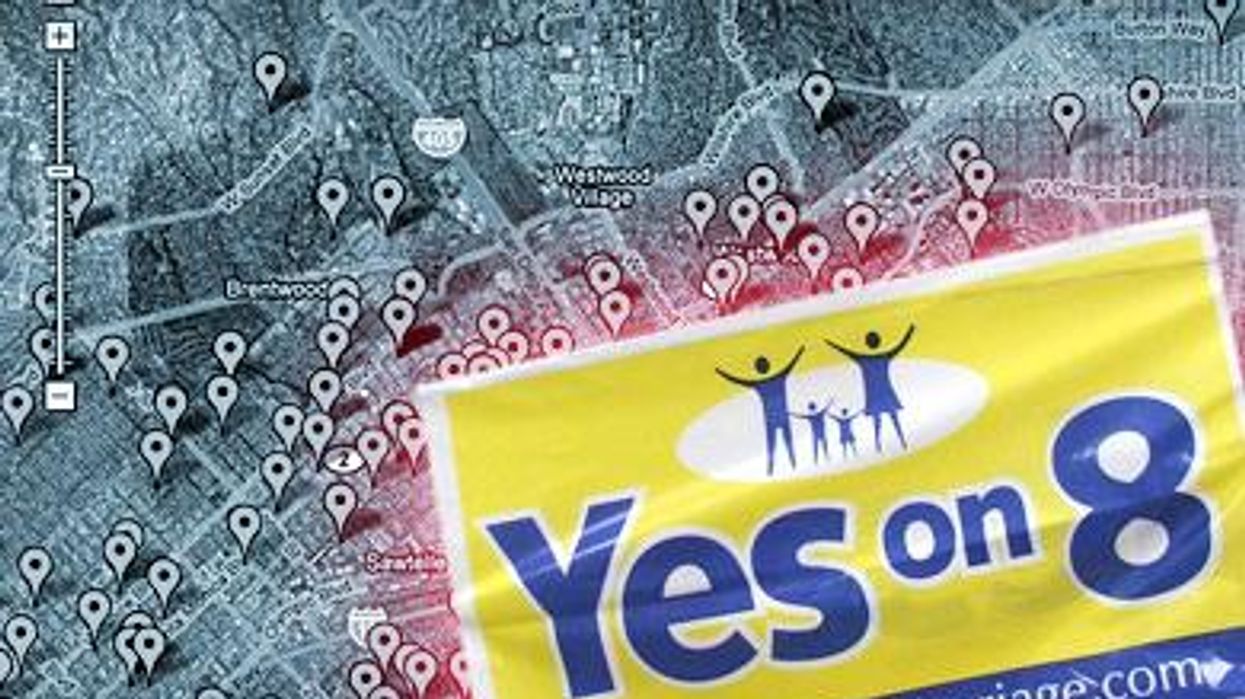
A California federal court has denied the request of Proposition 8 backers to block access to the names and addresses of 36,000 people who donated money in support of the gay marriage ban.
January 31 2009 12:00 AM EST
By continuing to use our site, you agree to our Privacy Policy and Terms of Use.

A California federal court has denied the request of Proposition 8 backers to block access to the names and addresses of 36,000 people who donated money in support of the gay marriage ban.
A California federal court on Thursday denied the request of Proposition 8 backers to block access to the names and addresses of 36,000 people who donated money in support of the gay marriage ban.
The two groups that headed the effort, ProtectMarriage.com and the National Organization for Marriage California, went to court with the claim that donors have been the target of threats, vandalism, and public protests. The court upheld the state's 35-year-old Political Reform Act, which makes the identities of those giving $100 or more to ballot initiatives or politicians a matter of public record.
U.S. district judge Morrison England Jr. ruled that California's campaign disclosure laws protect the public, especially during expensive initiative campaigns, by keeping the donor information public. With obscure names funding the campaigns for ballot initiatives, the public would not be able to identify the key players without such disclosure, he said.
"If there ever needs to be sunshine on a political issue, it is with a ballot measure," England said, according to the Associated Press.
Name disclosure, said Yes on 8 co-manager Frank Schubert, may prevent opponents of gay marriage from further funding such initiatives in California. Attorneys for the state, however, questioned this assertion. According to court records, only one of the nine people mentioned in the suit as being harassed actually donated to the campaign. The other eight worked as volunteers, spoke at campaign rallies, or displayed yard signs and bumper stickers. The state said the harassing activities that plaintiffs brought up, such as boycotts, were constitutionally protected forms of expression.
The disclosure became a more pertinent issue after an interactive map was created showing the homes of those who made donations. The identity of the map's creator is not known.
James Bopp, one of the attorneys representing the groups, attempted to stop the state from disclosing the names of those who donated at least $100, as larger-scale donors have already been identified, according to National Public Radio. He also wants all donor lists for the organizations removed from government records. The state is set to release a report identifying late donors Monday.
"It's just hard to believe that anyone, if this information had been available before the election, would care that Joe Blow had given $100 to a multimillion-dollar initiative campaign," Bopp told NPR.
Atty. Gen. Jerry Brown and Secretary of State Debra Bowen have both stated that people should file criminal reports if they experience harassment rather than carving "out a special privilege of anonymity for themselves alone."
Brown added, in a January 22 statement, that Prop. 8 supporters "are a well-financed association of individuals who raised $30 million in support of a ballot measure that received 52.3 percent of the vote. There is no risk that disclosure of donors will harm their ability to organize or otherwise pursue their political views."
While the Thursday ruling prevents the antigay groups from obtaining a preliminary injunction against the release of names, the matter is likely to go through appeals, according to AP. The suit was filed in federal court rather than state because it raised First Amendment issues, said Richard Coleson, another attorney for the groups. (Michelle Garcia, Advocate.com)
Charlie Kirk DID say stoning gay people was the 'perfect law' — and these other heinous quotes